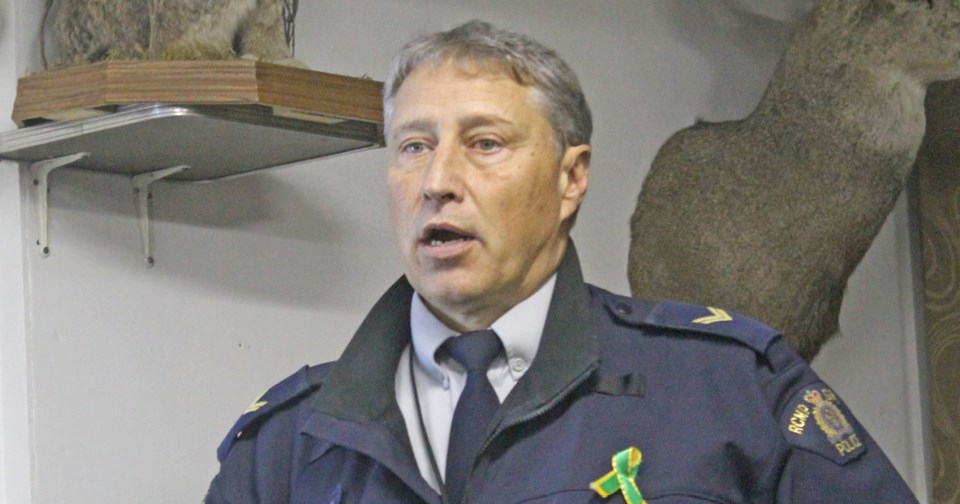NIPAWIN — The RCMP held an information session for Nipawin residents interested in creating a Citizens on Patrol (COPPS) group.Â
The information session on Oct. 24 was organized by the local RCMP.
“It’s extra ears and eyes for the community and it helps keep our community safer,” said Cst. Reid Doucette with the Nipawin RCMP. “Just to try to get more information out to the people who want to start up the COPPS program.”
COPPS works through unpaid volunteers having scheduled patrol routes where they patrol an area, communicating with an RCMP liaison. If they see something they deem suspicious they fill out a form on a COPPS app to report it. When the liaison checks their own phone they will see the form and can investigate the report.
It gives the patrollers no extra power or privileges, nor can the patrollers arrest someone.
“Communities that are concerned about crime in their communities, this can definitely assist in reducing crime and assisting police officers being their eyes and ears when they are busy,” said Cpl. Mel Zurevinsky from Regina, who gave the information session. “Where it is developed and where it is shown, crime drastically is diverted when communities are involved and have such programs.”
To join, the security requirements created by the National Association Citizens on Patrol are a background criminal record check, photocopy of a government issued photo ID and a valid licence (if driving).
“It’s a national Citizens on Patrol criteria, that’s all it is. Being that it’s run nationally they request all Citizens on Patrol groups follow the same protocol,” Zurevinsky said. “Every organization is independent right now in Saskatchewan. If this organization for some reason doesn’t feel like a criminal record check is warranted that don’t have to do it.”
There are a few dos and don’ts that Zurevinksy wants to make clear.
“Not to take any action physically, not to carry weapons, patrol two to a vehicle and make it fun. Have regular meetings on a regular basis and drum up as much support as you can.”
There is no training that goes with it.
“I could see that stuff coming around when we get a provincial umbrella and we have maybe meetings once a year where all the Citizens on Patrol groups can attend and those programs. I could definitely see [that] coming about and being developed,” Zurevinsky said. “Like your cultural sensitivity courses, that sort of thing.”




